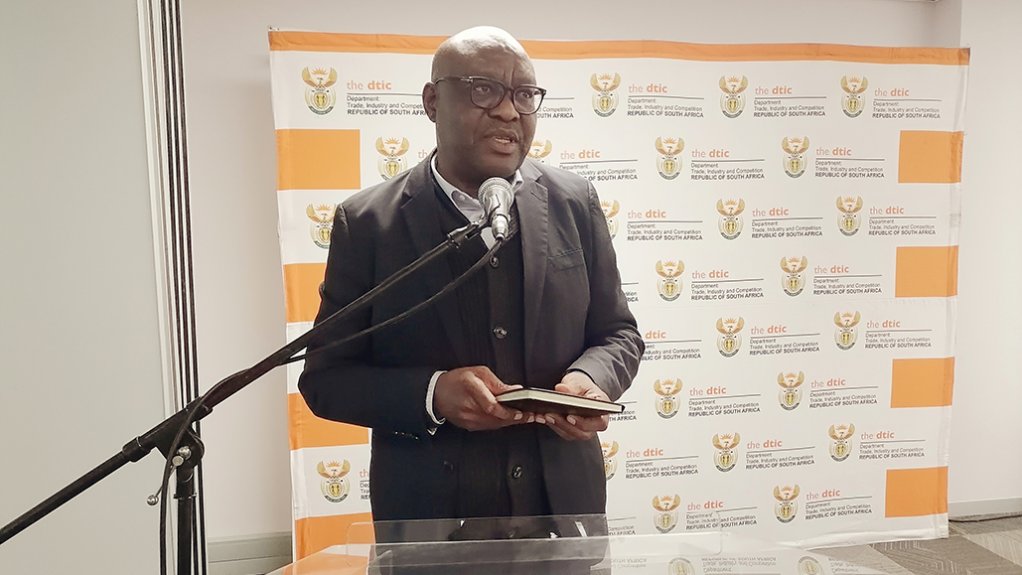Trade, Industry and Competition Deputy Minister Fikile Majola last month reiterated his department’s commitment to enhance support to special economic zones (SEZs), which he referred to as important instruments for the economy.
Addressing the SEZ Chief Executive Officers’ Forum in Kempton Park, Majola emphasised that commitment from provincial governments was crucial in ensuring that the SEZs succeeded in achieving the economic objecives outlined by national government.
Majola added that SEZs were making great progress owing to the support of provincial governments, particularly in areas where SEZs were facing challenges. He cited the example of the Tshwane Automotive SEZ, whose initial pledge amount of R4.33-billion was surpassed by R200-million, pinning its success on support from the Gauteng government.
He noted that the total number of permanent jobs created by suppliers based in the Tshwane Automotive SEZ amounted to 3098, an increase of 20% from the previous quarter, exceeding the zone’s pledged target of 2080.
“There are currently around 15 projects that are at different stages of development across the different SEZs. Significantly, these are mostly expected to be operationalised before the close of the 2023/24 financial year, thus adding to the 190 that are already operational in the ten designated SEZs,” Majola added.
“SEZs are important instruments to the economy; one cannot imagine the economy without these SEZs. Imagine Buffalo City Metropolitan Municipality without the East London Industrial Development Zone or the Nelson Mandela Metro without the Coega SEZ. “These SEZs are pillars of our economy and those that are not optimally operating are a disservice to our people.”
Majola also described the newly designated Namakwa SEZ in the Northern Cape as a game changer.
Trade, Industry and Competition Deputy Minister Nomalungelo Gina has called on the SEZ CEOs to treat investments coming into their zones with care.
Gina discouraged CEOs from frustrating investors with regulatory delays and slow pace in doing things, stressing that “SEZs must represent the best environment” to do business.
She added that since the introduction of the SEZs Programme, there had been an increase in the number of operational investors in the zones and that SEZ Programmes continued to attract significant numbers and boost the value of investments in various regions.
“There is a growing investment pipeline, the increase is largely attributed to the incentive package that has been introduced to attract investors,” Gina elaborated.
She emphasised that the full impact of the failure or successes of the SEZs would reflect on the economy as this was where the country should be noticing well-run concentrated manufacturing activities and job creation.
Gina also congratulated the Atlantis SEZ on its readiness to take on the construction of the 22-ha Zone 1, which the Department of Trade, Industry and Competition had funded. She expressed her satisfaction that the Atlantis SEZ was destined to become a strategic focus for green technology industries, as it had always positioned itself.
The estimated cumulative rand value of SEZ-based operational investments is estimated to have grown from R26-billion to R28-billion between the third and fourth quarters of 2022/23. Similarly, the number of direct jobs that were created had reportedly increased from 23 281 to just over 24000 during the same period.
Edited by: Nadine James
Features Deputy Editor
EMAIL THIS ARTICLE SAVE THIS ARTICLE
ARTICLE ENQUIRY
To subscribe email subscriptions@creamermedia.co.za or click here
To advertise email advertising@creamermedia.co.za or click here













